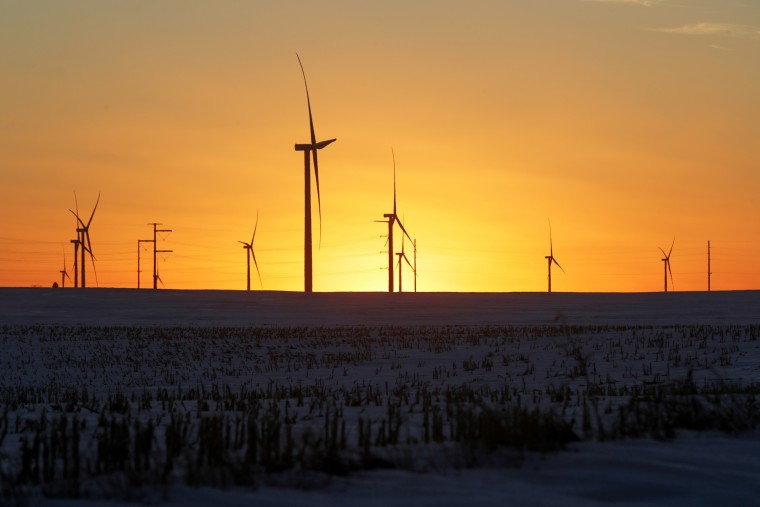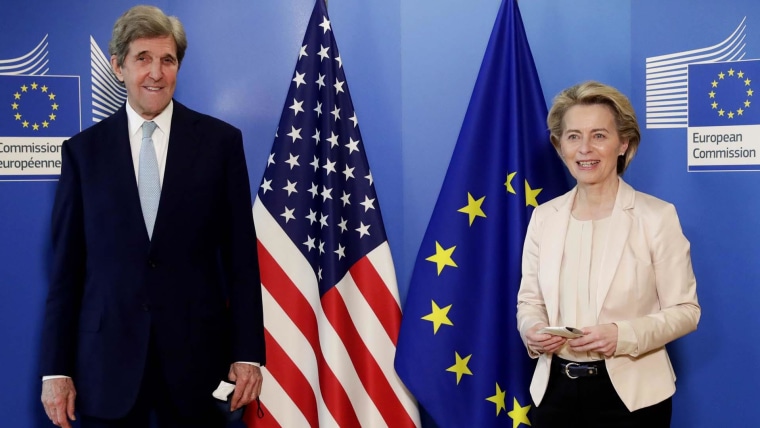The race is on, but cooling industry needs to accelerate net zero efforts
First-ever report shows cooling industry slow to join race to net zero emissions; New tools released to support industry to join the race to zero; Major cooling industry player Johnson Controls reinforces commitment to net zero cooling

IMAGE: COVER OF THE NEW REPORT FROM THE COOL COALITION AND PARTNERS. UNEP HELPED FORM THE COALITION IN RECOGNITION THAT ALMOST ONE-THIRD OF HUMANITY FACES DANGEROUS TEMPERATURES FOR MORE THAN 20... view more
CREDIT: UNEP / COOL COALITION
Paris, Nairobi, London, 29 March 2021 - Five major cooling suppliers are racing to net zero but they represent fewer than ten per cent of the 54 suppliers assessed in a new report, meaning the industry has a lot of work to do to catch up on climate action and reduce pollution from the sector, currently estimated at 7% of global greenhouse gas emissions.
With the world still falling short of meeting the Paris Agreement goals of holding global temperature rise this century to under 2 degrees C, and pursue 1.5 degrees C, action to reduce the climate impact of cooling will be essential.
According to the International Energy Agency, emissions from cooling are expected to double by 2030 and triple by 2100, driven by heat waves, population growth, urbanization, and a growing middle class. By 2050, space cooling alone will consume as much electricity as China and India today.
The UN has identified cooling as a key sector for action in its Race to Zero Breakthroughs, which are intended to galvanise action ahead of the next global climate meeting, COP26, which is due to take place later this year.
However, Cooling Suppliers: Who's Winning the Race to Net Zero (available at https:/
The report - released by the Race to Zero campaign, the Kigali Cooling Efficiency Program (K-CEP), Carbon Trust and other partners in the UN Environment Programme-hosted Cool Coalition - assesses cooling firms against three key impact areas defined in the Cooling Climate Action Pathway.
These are:
- Super-efficient equipment and appliances: Making super-efficient cooling equipment and smart appliances powered by zero-carbon energy the norm;
- Ultra-low global warming potential refrigerants; and
- Passive cooling: Widespread adoption of measures that avoid or reduce the need for mechanical cooling, including reductions in cooling loads, human-centric design and urban planning.
The report calls on cooling firms to show increased ambition to line up with net-zero commitments from over 100 governments and many other private sector actors.
One company that recently announced new commitments is Johnson Controls, a global leader for smart, healthy and sustainable buildings and producer of cooling equipment. The company has committed to moving its operations to net-zero emissions by 2040. Johnson Controls, which employs 100,000 people in more than 150 countries, is also a member of the Cool Coalition - a group of over 100 companies, governments, cities and organizations working to lower the climate impact of the cooling industry.
"Johnson Controls is proud of its recent commitment to achieve the most ambitious science-based targets by 2030 and net zero carbon emissions before 2040," said Clay Nesler, vice president global energy and sustainability at Johnson Controls. "Smart, healthy and sustainable cooling solutions are key to accelerating the race to zero for our company as well as our customers."
New tools to accelerate cooling action
To help other companies and countries join the race to net zero, Cool Coalition partners are also releasing a suite of products to guide their actions - with the support of K-CEP and the technical expertise of the Carbon Trust.
The report comes alongside the Pathway to Net Zero Cooling Action Plan for the COP26 Champions Team which highlights the areas where progress is needed. The action table has been endorsed by a range of leading organisations and institutions including CLASP, E3G, the Environmental Investigation Agency, IGSD, RMI, UN Environment Programme, University of Birmingham and the University of Oxford.
A 'Cool Calculator' scenario planning tool is also being launched to help companies and governments run simple calculations on key aspects of cooling decarbonization to enable them to identify the set of solutions that works best for them.
Additionally, the UK's Environmental Investigation Agency (EIA) has launched a net-zero cooling product guide that will allow companies, governments and consumers to cut their cooling footprint by choosing products that are energy-efficient and run on natural refrigerants with ultra-low Global Warming Potential.
"As consumers and producers of cooling look to reduce their carbon footprint, urgent action on both refrigerants and energy efficiency is needed," said Fionnuala Walravens, Senior Campaigner at EIA. "EIA's Pathway to net-zero cooling product list offers a range of climate-friendly solutions available now."
The EIA list also calls on governments to do more to support the uptake of sustainable cooling, by outlining cooling plans in their commitments under the Paris Agreement and looking at legislation to speed up the phasing out of hydrofluorocarbons - climate-warming refrigerants that are now being phased out under an international agreement known as the Kigali Amendment to the Montreal Protocol.
"The development and expansion of net-zero cooling is a critical part of our Race to Zero emissions," said Nigel Topping, UK High Level Champion for COP26. "In addition to technological breakthroughs and ambitious legislation, we also need sustainable consumer purchasing to help deliver wholesale systems change, and as such I welcome the EIA cooling products guide as an important contribution to accelerating the race."
Additional quotes:
"Efforts to race to net zero cooling present an incredible opportunity to meet ambitious climate, environment and development goals and unlock the clean energy transition" said David Aitken, Director, Innovation at the Carbon Trust. "These tools show how we can get there."
"From healthcare and agriculture, to transportation and buildings, the environmental performance of cooling impacts many sectors' pathways to zero carbon emissions," said Dan Hamza-Goodacre, K-CEP's Non-Executive Director. "We won't get to net zero without concerted and ambitious action on cooling."
###
NOTES TO EDITORS
About the Race to Zero
Race To Zero is a global campaign to rally leadership and support from businesses, cities, regions, investors for a healthy, resilient, zero carbon recovery that prevents future threats, creates decent jobs, and unlocks inclusive, sustainable growth.
It mobilizes a coalition of leading net zero initiatives, representing 471 cities, 23 regions, 1,675 businesses, 85 of the biggest investors, and 569 universities. These 'real economy' actors join 120 countries in the largest ever alliance committed to achieving net zero carbon emissions by 2050 at the latest. Collectively these actors now cover nearly 25% global CO2 emissions and over 50% GDP.
The objective is to build momentum around the shift to a decarbonized economy ahead of COP26, where governments must strengthen their contributions to the Paris Agreement. This will send governments a resounding signal that business, cities, regions and investors are united in meeting the Paris goals and creating a more inclusive and resilient economy.
About the Cool Coalition
The Cool Coalition is one of the official outcomes and "Transformation Initiatives" put forward by the Executive Office of the Secretary-General for the UN Climate Action Summit in New York. Hosted by UNEP, the Cool Coalition is a global multi-stakeholder network that connects a wide range of key actors from government, cities, international organizations, businesses, finance, academia, and civil society groups to facilitate knowledge exchange, advocacy and joint action towards a rapid global transition to efficient and climate-friendly cooling. For more information, visit http://www.
About the Carbon Trust
Established in 2001, the Carbon Trust works with businesses, governments and institutions around the world, helping them contribute to, and benefit from, a more sustainable future through carbon reduction, resource efficiency strategies, and commercialising low carbon businesses, systems and technologies.
About the Environmental Investigation Agency
The Environmental Investigation Agency (EIA) investigates and campaigns against environmental crime and abuses. Our undercover investigations expose transnational wildlife crime, with a focus on elephants, pangolins and tigers, and forest crimes such as illegal logging and deforestation for cash crops such as palm oil; we work to safeguard global marine ecosystems by tackling plastic pollution, exposing illegal fishing and seeking an end to all whaling; and we address the threat of global warming by campaigning to curtail powerful refrigerant greenhouse gases and exposing related criminal trade.
About Johnson Controls:
At Johnson Controls (NYSE:JCI) we transform the environments where people live, work, learn and play. As the global leader in smart, healthy and sustainable buildings, our mission is to reimagine the performance of buildings to serve people, places and the planet.
With a history of more than 135 years of innovation, Johnson Controls delivers the blueprint of the future for industries such as healthcare, schools, data centers, airports, stadiums, manufacturing and beyond through its comprehensive digital offering OpenBlue. With a global team of 100,000 experts in more than 150 countries, Johnson Controls offers the world`s largest portfolio of building technology, software as well as service solutions with some of the most trusted names in the industry. For more information, visit http://www.
About the Kigali Cooling Efficiency Program
The Kigali Cooling Efficiency Program (K-CEP), a program of the ClimateWorks Foundation, is a philanthropic collaborative that works in tandem with the Kigali Amendment of the Montreal Protocol by helping developing countries transition to energy-efficient, climate-friendly, and affordable cooling solutions. K-CEP focuses on improving the energy efficiency of cooling in order to double the climate benefits and significantly increase the development benefits of the Kigali Amendment's efforts to phase down the production and use of hydrofluorocarbons (HFCs).
For more information:
- Sophie Loran, Communications Officer, UNEP, + 336 01 37 79 17, sophie.loran@un.org
- Michael Isaac, Leader, Global Public Relations & Media, Johnson Controls, +41 52 6330374, michael.isaac@jci.com
- Paul Woolwich, Head of Communications, EIA, paulwoolwich@eia-international.org
- Ainslie Macleod, Associate Director of Communications, Carbon Trust, Ainslie.Macleod@CarbonTrust.com
- Christina Hayes, Communications Consultant, K-CEP, christina.hayes@climateworks.org








